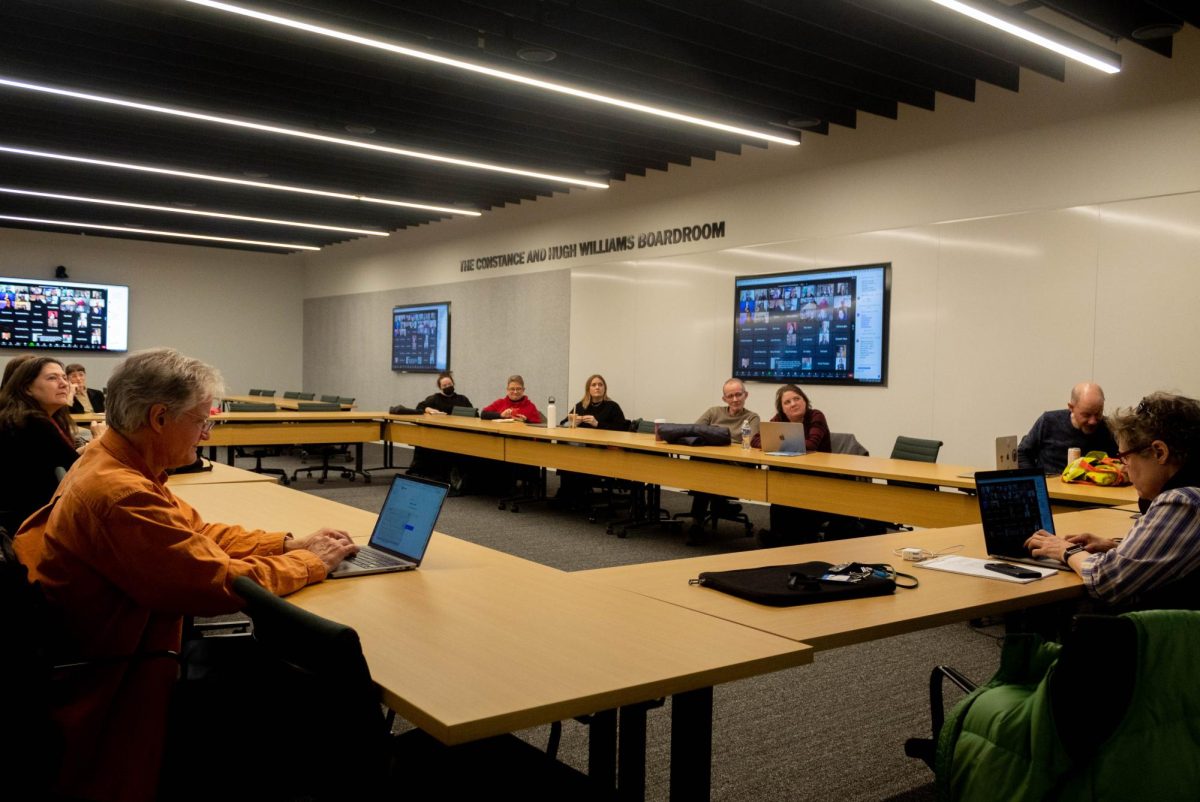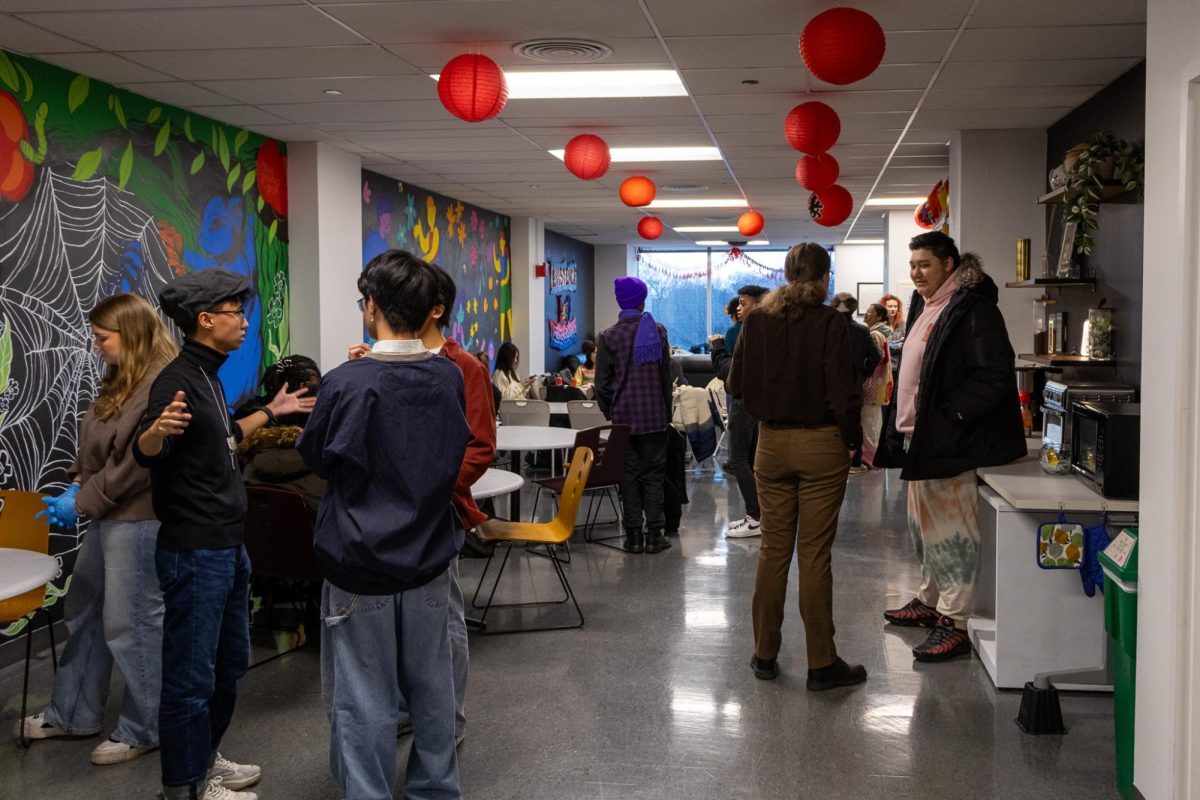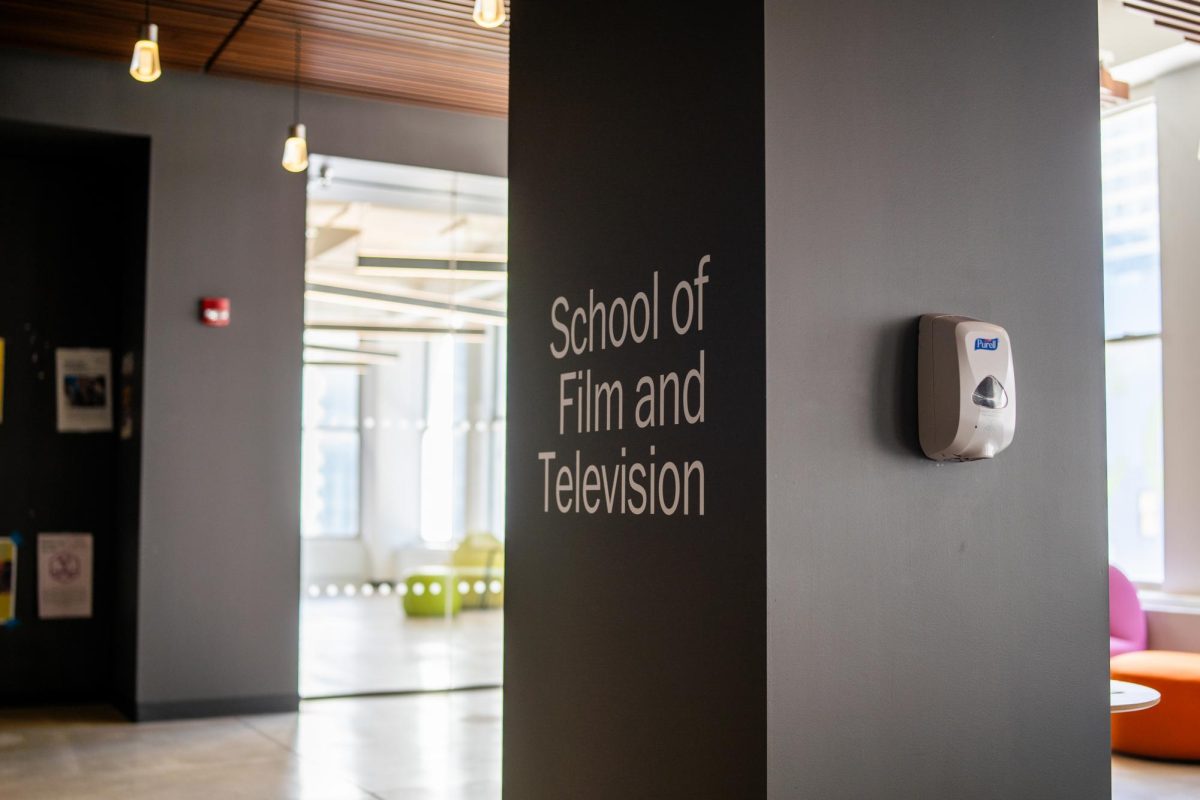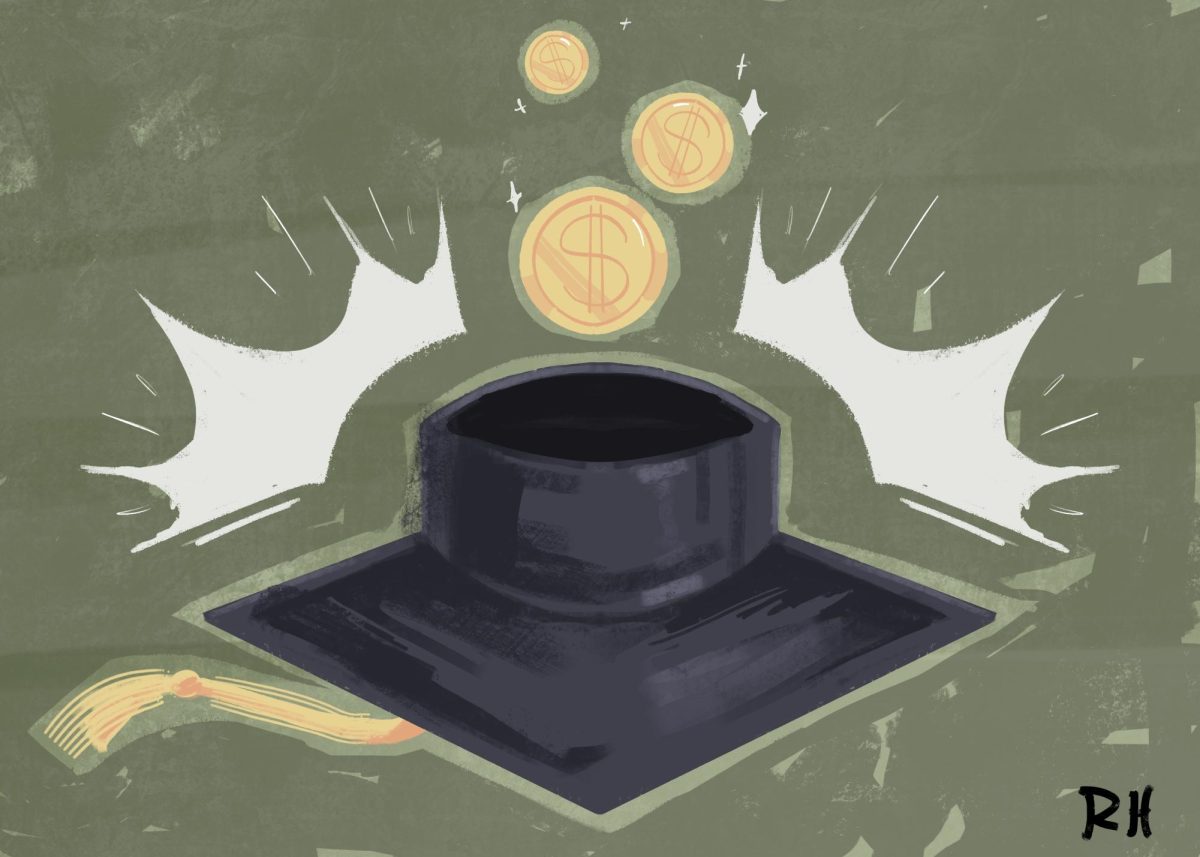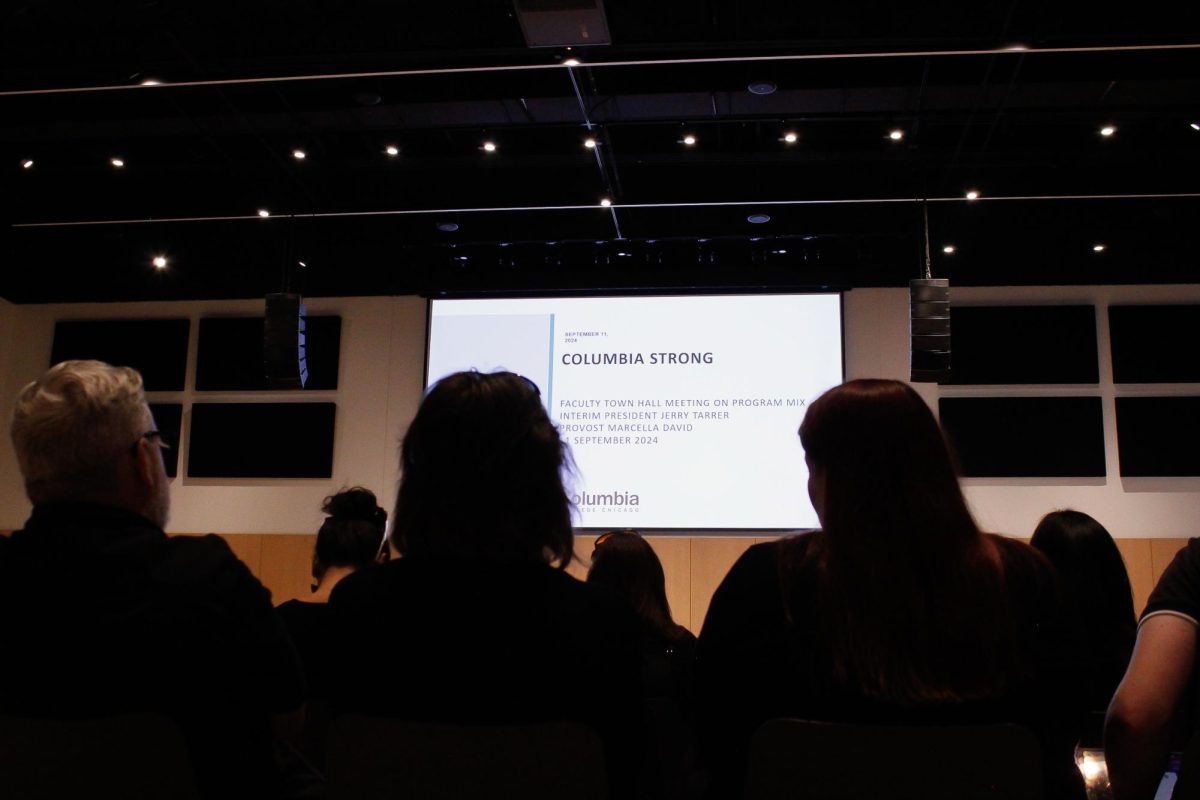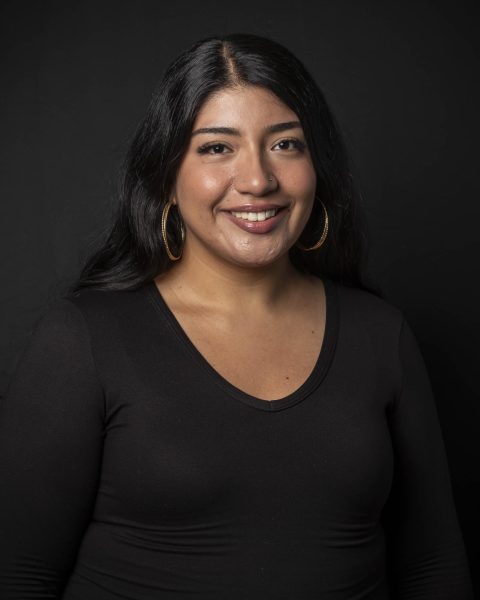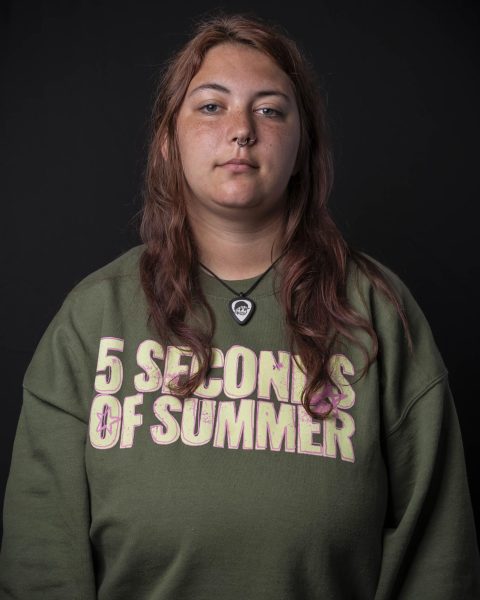President and CEO Kwang-Wu Kim’s decision to step down surprised Columbia’s faculty, who were already reeling from news that the college might cut academic programs and lay off full-time faculty.
In interviews with the Chronicle, full-time faculty described the uncertainty they feel as plans to restructure the college circulate amid further enrollment declines.
The college’s spring enrollment saw a 12% decrease from 6,529 in the Fall 2023 semester to 5,757.
In the last five spring semesters, Columbia has averaged an enrollment loss of about 11% compared to the previous fall semester, according to an email to the campus community from Derek Brinkley, assistant vice president of undergraduate admissions.
Of the first-time students who started in Fall 2023, a semester disrupted by a seven-week strike, 86.9% registered for Spring 2024 compared to 84.8% for the year before.
However, enrollment is expected to drop another 1,000 students in the fall.
Christopher Shaw, associate professor in the Science and Mathematics Department, said that worries faculty.
“We are hearing in our classrooms that students and their parents are not feeling reassured by the place that Columbia is in right now,” he said.
At the direction of the Board of Trustees, Kim is preparing a report with his recommendations for how to close a $38 million financial gap that faculty said will almost certainly include merging departments and closing majors with low enrollment.
The last time the college did this was in 2018 when it closed the Education and Creative Arts Therapies departments.
Kim announced his resignation on Wednesday, Feb. 14, just days after telling the Faculty Senate that the college would begin a process outlined in the “Statement of Policy” for determining whether the financial crisis is bad enough to eliminate academic programs and full-time faculty positions. This was the same process used six years ago.
Associate Professor Katie Paciga, who was at Columbia in 2018, said that this is a “different, much larger conundrum.”
“Same president, different provost,” Paciga told the Chronicle in an email. “Same anxiety.”
She is concerned about the short timeframe for making even more changes this time and what the consequences may be. Paciga said that the last advisory report was focused on two academic units and fewer than 15 full-time faculty.
Preliminary proposals being shared among faculty show possible reductions across the School of Liberal Arts and Sciences, though nothing has been finalized.
Kim is expected to deliver a report to the Faculty Senate on Feb. 28.
“Any change to the core will have ripple effects for four to six years, I imagine,” Paciga said. “I am desperately trying to hold on to the same hope I had last time.”
Kim has attributed the worsening financial crisis to the strike last fall by part-time instructors.
The strike cost the college $13 million, about half of that from tuition credits given to students for classes impacted by the strike.
Columbia Faculty Union President Diana Vallera said Kim stepping down as president was “necessary” but “will not change the destructive course Columbia is on without the policies and the culture of the Kim administration being dismantled.”
Looking ahead, “CFAC seeks a president who will harness these powers through these principles that will make Columbia a national treasure,” she told the Chronicle in an email.
Senior Vice President and current Chief Financial Officer Jerry Tarrer will become interim president and CEO beginning on July 2 while the Board of Trustees conducts a presidential search.
Charee Mosbey-Holloway, director of Student Diversity and Inclusion, said she hopes the new president values “students for their uniqueness, not in spite of it.”
“As the landscape of higher education continues to shift it is absolutely critical that we be fearless and innovative in our approach to DEI,” she said.
Visda Goudarzi, associate professor and associate chair of the Audio Arts and Acoustics Department, is more concerned about the college coming together to help resolve the issues.
“I don’t think one person can save or destroy an institution,” she said. “I think it’s a collaborative process. It’s a whole administrative leadership effort that influences the direction of the college.”
Even before Kim announced his resignation, “a lot of us faculty members were freaking out,” said Derick D. Jones Jr., assistant professor, also in the Science and Mathematics Department. But they remain hopeful. “I chose Columbia because I believe in Columbia,” they said. “Whatever this is, we’ll make it through it.”
Shaw said faculty are worried about their jobs.
“Faculty and staff who have made Columbia their homes for decades may lose their positions, and while it’s important to be deliberate, the slow-moving process of creating an advisory plan is going to mean many people don’t learn until this summer whether they’re going to be employed in the fall,” Shaw told the Chronicle in an email.
Shaw said that the timeframe is difficult for people looking for academic positions.
“It is far too late to mount a full-scale job search for the fall,” he said. “Either way, faculty need time to make alternative plans.”
What students are saying:
Some students told the Chronicle that Kim’s decision to step down this summer surprised them. Others are concerned about the impact on classes.
Kim met with the Student Government Association the day before he announced he would be leaving.
“I was shocked, especially because SGA had just met with him the day prior,” said Jenna Davis, vice president of communications for the Student Government Association.
Film and television first-year Erica Pinto said she hopes no more classes are cut because of it.
Eli Bahner, sophomore audio arts major, said he enjoyed the communal aspect between students and faculty, but this year “seemed to cause a lot of drama between everybody.”
“I am happy Dr. Kim is leaving,” he said.
Additional reporting by Rasheed Ayoola, Olivia Cohen, Kate Larroder, Sofia Oyarzun, Abra Richardson, Sydney Richardson, Vivian Richey, Allison Shelton and Blake Swanson.


